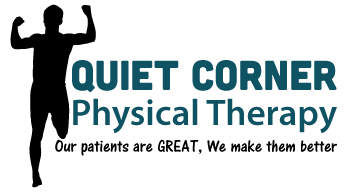
How Physical Therapy Can Help Alleviate Pain from Fractures
Fractures, or broken bones, can be painful and debilitating injuries that require proper treatment and care for optimal healing. While medical interventions such as immobilization and surgery play crucial roles in fracture management, physical therapy is also an essential component of the recovery process. Physical therapy offers numerous benefits to individuals with fractures, aiding in pain relief, restoration of function, and overall recovery. In this article, we will explore how physical therapy can help alleviate pain from fractures and improve the healing process.
One of the primary goals of physical therapy in fracture management is pain management. Fractures can cause significant pain, which can be exacerbated by inflammation and muscle tightness around the injured area. Physical therapists employ various techniques to relieve pain, such as therapeutic exercises, manual therapy, and modalities like heat or cold therapy. These interventions help reduce inflammation, relax muscles, and promote blood flow to the affected area, thereby alleviating pain and discomfort.
Physical therapy also focuses on restoring and improving the range of motion and strength of the injured body part. Immobilization, such as casting or splinting, is often necessary to allow the fracture to heal properly. However, prolonged immobilization can lead to stiffness, muscle weakness, and joint dysfunction. Physical therapists employ specific exercises and techniques to prevent or address these issues. They guide patients through targeted exercises to restore flexibility, strength, and coordination in the injured area, aiding in functional recovery and preventing long-term complications.
Another critical aspect of physical therapy for fractures is balance and proprioception training. Fractures, especially those involving the lower extremities, can disrupt balance and proprioception—the body’s ability to perceive its position in space. Impaired balance and proprioception increase the risk of falls and reinjury. Physical therapists utilize specialized exercises and equipment to improve these aspects, enhancing stability, coordination, and body awareness. By doing so, patients can regain their confidence and reduce the likelihood of future fractures.
Additionally, physical therapy plays a vital role in the prevention and management of complications associated with fractures. For instance, after a long period of immobilization, osteoporosis or loss of bone density can occur. Physical therapists incorporate weight-bearing exercises and strength training to promote bone health and reduce the risk of osteoporosis. Furthermore, they provide education and guidance on lifestyle modifications, such as proper nutrition and ergonomics, to prevent future fractures and optimize overall bone health.
Moreover, physical therapy provides a holistic approach to fracture management by addressing not only the physical but also the psychological aspects of recovery. Dealing with a fracture can be emotionally challenging, leading to anxiety, depression, or a fear of movement. Physical therapists offer support, encouragement, and mental strategies to help patients cope with the emotional impact of their injury. By fostering a positive mindset and promoting self-efficacy, physical therapy can enhance the overall well-being and motivation of individuals during their recovery journey.
In conclusion, physical therapy is a crucial component in the management of fractures. It helps alleviate pain, restore function, and enhance overall recovery. Through various techniques, physical therapists assist in pain management, restore range of motion and strength, improve balance and proprioception, prevent complications, and address the emotional well-being of patients. If you have experienced a fracture, consider seeking the expertise of a physical therapist to optimize your healing process and regain your quality of life. Remember, each fracture is unique, and a personalized physical therapy program tailored to your specific needs can make a significant difference in your recovery journey.
If you are in need of physical therapy or rehab to help alleviate pain from a fracture, please contact our office today to set up an appointment on a day and time that’s convenient for you.
There are many things that make Quiet Corner Physical Therapy different. First and foremost, our dedicated staff is completely devoted to making your physical therapy experience as easy and enjoyable as possible. We pride ourselves on providing each and every one of our patients with industry leading individualized care and treatment plans. The number one concern of our compassionate staff is your well-being. Quiet Corner has the unique ability to utilize the most effective treatment techniques and services including cupping, paraffin, dry needling, mobility tools, E-stim, TENS, taping, traction, and joint/soft tissue mobilization just to name a few.




